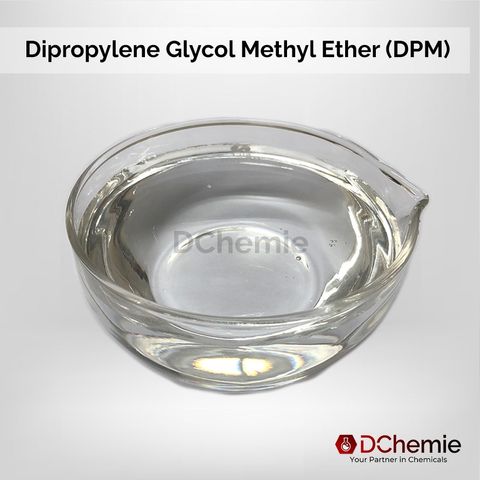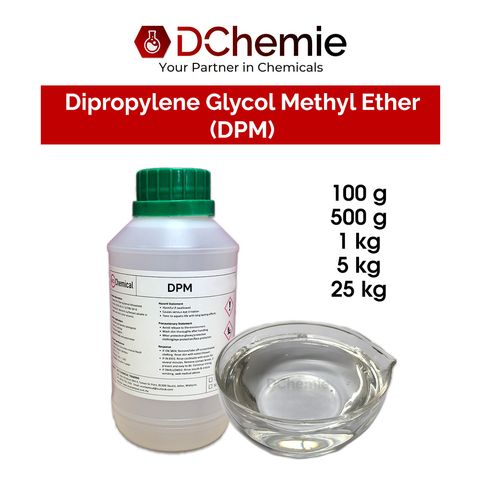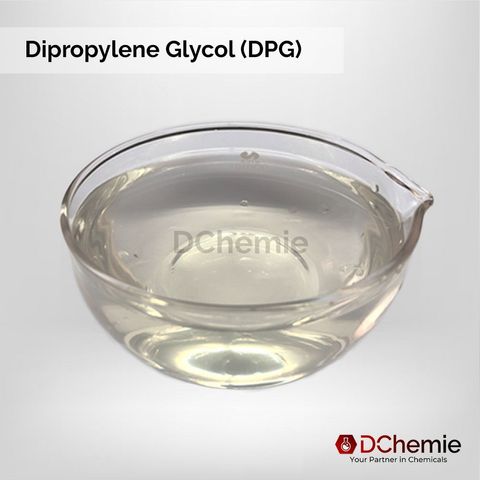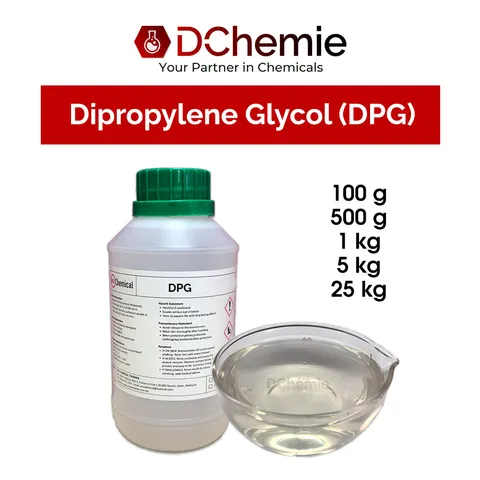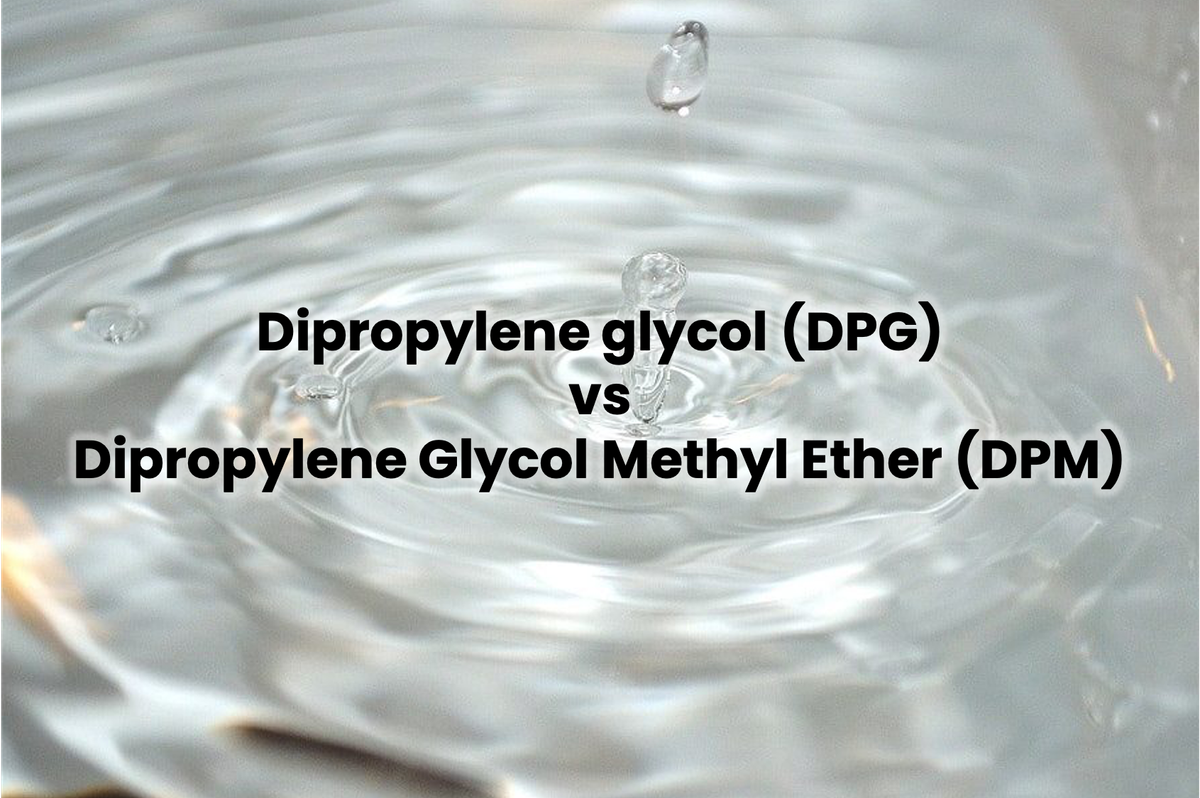
What is Dipropylene glycol DPG?
Dipropylene glycol (DPG) is a clear, colorless, and odorless liquid solvent that is commonly used in the fragrance, cosmetics, and personal care industries. It is a member of the glycol family of solvents and is produced by the hydrolysis of propylene oxide.
DPG is known for its ability to effectively dilute and carry fragrance oils, making it a popular choice for use in perfumes, colognes, and other fragranced products. It has good solubility properties and can effectively dissolve a wide range of fragrance oils.
In addition to its use in the fragrance industry, DPG is also used as a solvent in a variety of other applications such as inks, coatings, and cleaning products. It is generally considered safe for use in consumer products when used in compliance with relevant regulations and safety standards.
What is Dipropylene Glycol Methyl Ether DPM?
Dipropylene glycol methyl ether (DPM) is a clear, colorless, and odorless liquid solvent that is commonly used in the fragrance, cosmetics, and personal care industries. It is a member of the glycol ether family of solvents and is produced by the reaction of propylene oxide with methanol.
DPM is similar in its properties to dipropylene glycol (DPG) and is often used as an alternative to DPG due to its milder odor and lower potential for skin irritation. Like DPG, DPM has good solubility properties and can effectively dissolve a wide range of fragrance oils.
In addition to its use in the fragrance industry, DPM is also used as a solvent in a variety of other applications such as inks, coatings, and cleaning products. It is generally considered safe for use in consumer products when used in compliance with relevant regulations and safety standards.
Applications
Dipropylene glycol (DPG) and dipropylene glycol methyl ether (DPM) are both commonly used as solvents in the fragrance, cosmetics, and personal care industries. However, they can also be used in other applications.
DPG is known for its ability to effectively dilute and carry fragrance oils, making it a popular choice for use in perfumes, colognes, and other fragranced products. It is also used as a solvent in a variety of other applications such as inks, coatings, and cleaning products.
DPM is similar in its properties to DPG and is often used as an alternative to DPG due to its milder odor and lower potential for skin irritation. Like DPG, DPM has good solubility properties and can effectively dissolve a wide range of fragrance oils. It is commonly used in the fragrance industry as well as in other applications such as inks, coatings, and cleaning products.
Both solvents are generally considered safe for use in consumer products when used in compliance with relevant regulations and safety standards. The choice of solvent will depend on various factors such as the specific application, desired fragrance profile, and regulatory requirements.
Cost
The cost of dipropylene glycol (DPG) and dipropylene glycol methyl ether (DPM) can vary depending on factors such as the supplier, quantity ordered, and shipping costs.
In general, DPM is typically more expensive than DPG due to its higher purity and lower odor. However, the actual cost can vary significantly depending on the specific grade and quality of the solvent, as well as the quantity ordered.
The cost of solvents like DPG and DPM can also be influenced by market factors such as supply and demand, raw material costs, and transportation costs. It's always a good idea to shop around and compare prices from multiple suppliers to find the best value for your specific needs.
Shelf Life
Both dipropylene glycol (DPG) and dipropylene glycol methyl ether (DPM) have a relatively long shelf life if stored properly.
DPG has a shelf life of around 2 years when stored in a cool, dry place away from direct sunlight and sources of heat. Exposure to high temperatures or moisture can cause degradation of the solvent and decrease its effectiveness. It's also important to keep DPG containers tightly sealed to prevent contamination and evaporation.
DPM also has a similar shelf life of around 2 years when stored in a cool, dry place away from direct sunlight and sources of heat. It's also important to keep DPM containers tightly sealed to prevent contamination and evaporation.
It's important to note that the shelf life of solvents like DPG and DPM can vary depending on the specific grade and quality of the solvent, as well as the storage conditions. Always refer to the manufacturer's instructions and guidelines for proper storage and handling.
Which is More Common in the Market
Dipropylene glycol (DPG) is generally more commonly used as a solvent in the perfume industry compared to dipropylene glycol methyl ether (DPM). This is because DPG has been used as a fragrance solvent for many decades and is well-established in the industry. It is known for its excellent solubility and ability to effectively dilute and carry fragrance oils, and is a popular choice for use in perfumes, colognes, and other fragranced products.
While DPM has similar properties to DPG and is also used as a fragrance solvent in some applications, it is generally less commonly used than DPG due to its higher cost and lower availability. However, DPM is often preferred in certain applications due to its milder odor and lower potential for skin irritation.
Conclusion
In conclusion, dipropylene glycol (DPG) and dipropylene glycol methyl ether (DPM) are both important solvents used in the perfume industry. DPG is more commonly used due to its established use and effectiveness as a fragrance solvent, while DPM is preferred in certain applications due to its milder odor and lower potential for skin irritation. Both solvents have good solubility properties and can effectively dissolve a wide range of fragrance oils, making them important components in the creation of fragranced products. When considering the use of these solvents, it is important to consider their specific properties, application, and cost, as well as to follow proper safety precautions and storage guidelines.

